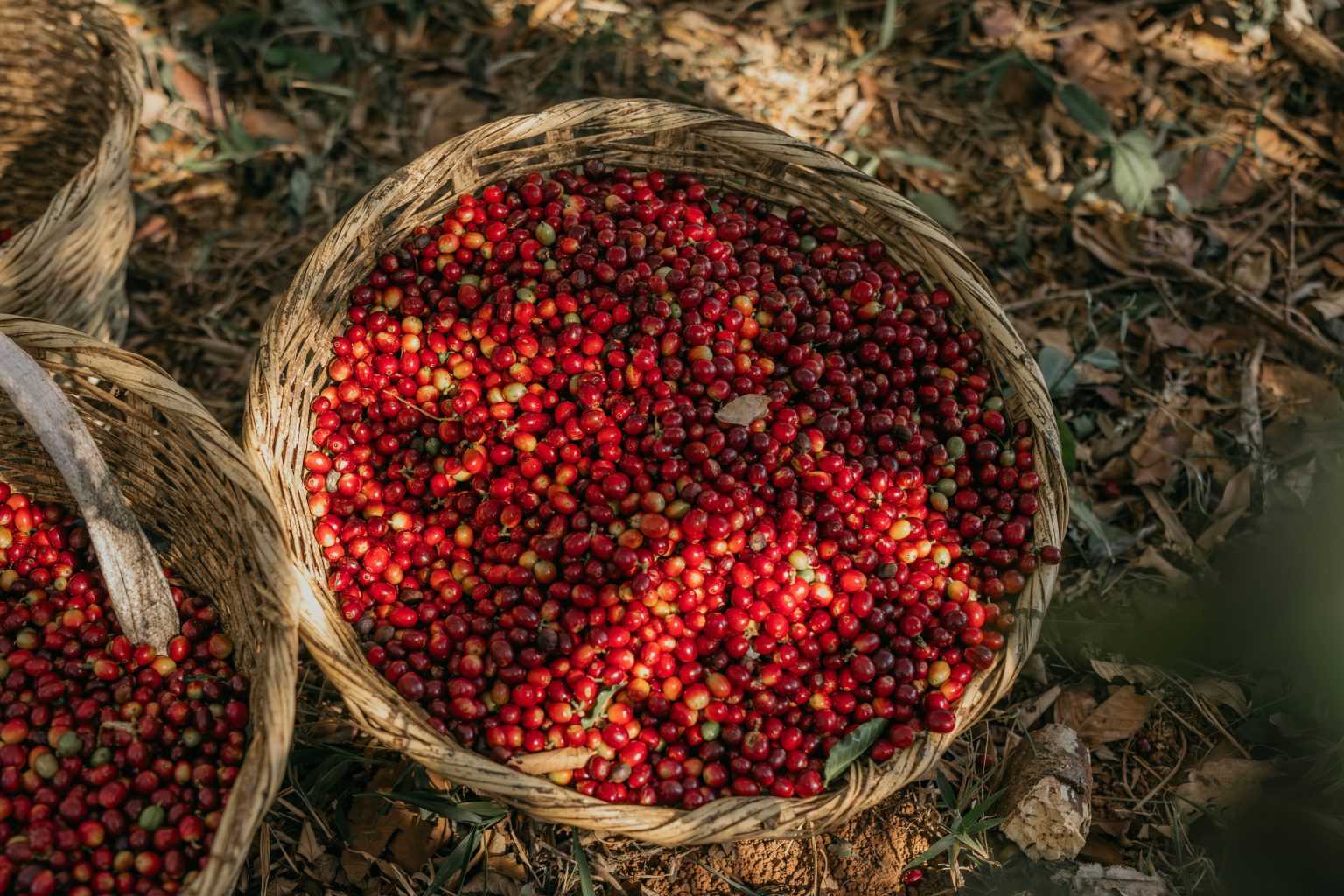Coffee is more than just a morning ritual; it’s a global commodity that fuels economies and livelihoods. From its cultivation in tropical regions to brewing in cafés worldwide, coffee’s journey involves complex economic dynamics.
1. The Coffee Supply Chain: From Farm to Cup
Coffee’s supply chain involves multiple stages, each contributing to its final cost:
- Cultivation: Coffee is primarily grown in tropical regions, with Brazil, Vietnam, and Colombia being the largest producers. The process is labour-intensive and involves planting, harvesting, and initial processing.
- Processing and Exporting: Coffee cherries are processed into green beans and exported globally. Farmers often sell to cooperatives or intermediaries, who handle export logistics.
- Importing and Roasting: Importers buy green coffee beans to sell to roasters, who transform them into the aromatic products we know.
- Distribution: Roasted coffee is distributed to cafés, retailers, and other businesses. Wholesale coffee suppliers bridge the gap between roasters and end consumers.
2. Factors Influencing Coffee Prices
Several variables influence the price of wholesale coffee, including:
- Global Supply and Demand: Coffee prices fluctuate based on harvest yields and global consumption patterns. A poor harvest in a major producing country can drive up prices.
- Weather Conditions: Coffee plants are sensitive to weather. Droughts, frosts, or excessive rainfall can severely impact yields.
- Labour Costs: Labour forms a significant part of coffee production costs. Changes in wages or labour availability directly affect pricing.
- Currency Fluctuations: Most coffee transactions occur in US dollars. Exchange rate shifts can influence the profitability of coffee exports for producing nations.
- Market Speculation: Commodities markets play a pivotal role in coffee pricing. Speculative trading often leads to price volatility.
3. The Role of Fair Trade and Sustainability
In response to the volatile nature of coffee pricing, fair trade initiatives aim to provide stability for farmers. These programmes guarantee minimum prices, helping protect producers from market downturns. Moreover, sustainability certifications like Rainforest Alliance encourage environmentally responsible practices, which can attract premium pricing for certified products.
However, these programmes add to the wholesale cost, requiring compliance with specific standards. Many businesses and consumers are willing to absorb this cost, recognising the long-term benefits of ethical sourcing.
4. Wholesale Coffee Buying: Challenges and Considerations
For cafés, restaurants, and retailers, buying coffee wholesale balances cost, quality, and reliability. Key considerations include:
- Pricing Models: Wholesale coffee prices are often negotiated based on volume. Larger purchases typically result in better per-unit pricing.
- Quality Assurance: High-quality coffee beans demand a higher price. Wholesale buyers must balance quality expectations with budget constraints.
- Supplier Relationships: Building a strong relationship with reliable suppliers ensures consistency in supply, which is crucial for businesses with steady customer demand.
- Shipping and Storage Costs: Transport and storage add additional layers of cost. Wholesale buyers must account for these logistical expenses.
5. Economic Trends in the Coffee Industry
Several trends are reshaping the economics of wholesale coffee:
- Rising Demand for Specialty Coffee: Consumers are increasingly willing to pay a premium for ethically sourced, high-quality coffee. This has boosted the demand for speciality beans, which command higher wholesale prices.
- Automation and Technology: Farming, roasting, and brewing innovations enhance efficiency. While this reduces certain costs, initial investment in technology can be substantial.
- Climate Change Impact: The long-term effects of climate change pose risks to coffee production. Rising temperatures and unpredictable weather patterns push producers to explore climate-resilient coffee varieties.
- Local Roasting Trends: More businesses invest in local roasting capabilities to differentiate their offerings. This reduces reliance on large-scale roasters but can increase upfront costs.
6. Navigating the Future of Wholesale Coffee
The wholesale coffee market is expected to grow, driven by increasing consumption in emerging markets and evolving consumer preferences. To navigate this dynamic industry, players across the supply chain must remain adaptable.
Farmers need access to resources and education to adopt sustainable practices. Wholesalers must leverage technology to streamline operations and maintain competitive pricing. Businesses purchasing wholesale coffee should prioritise ethical sourcing and build strong partnerships with suppliers.


